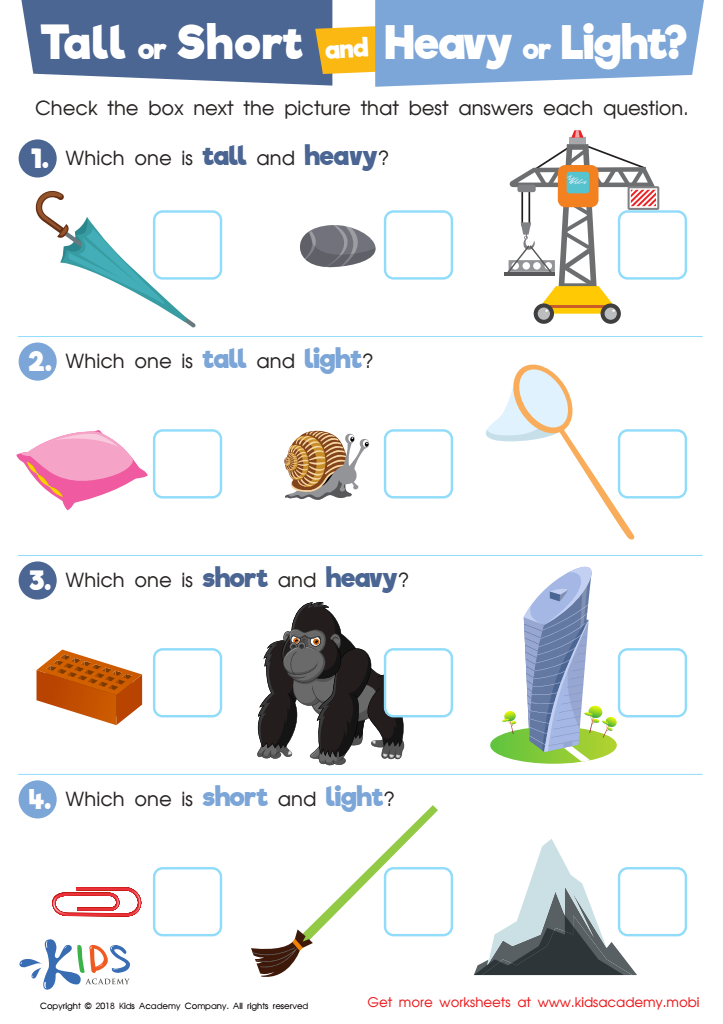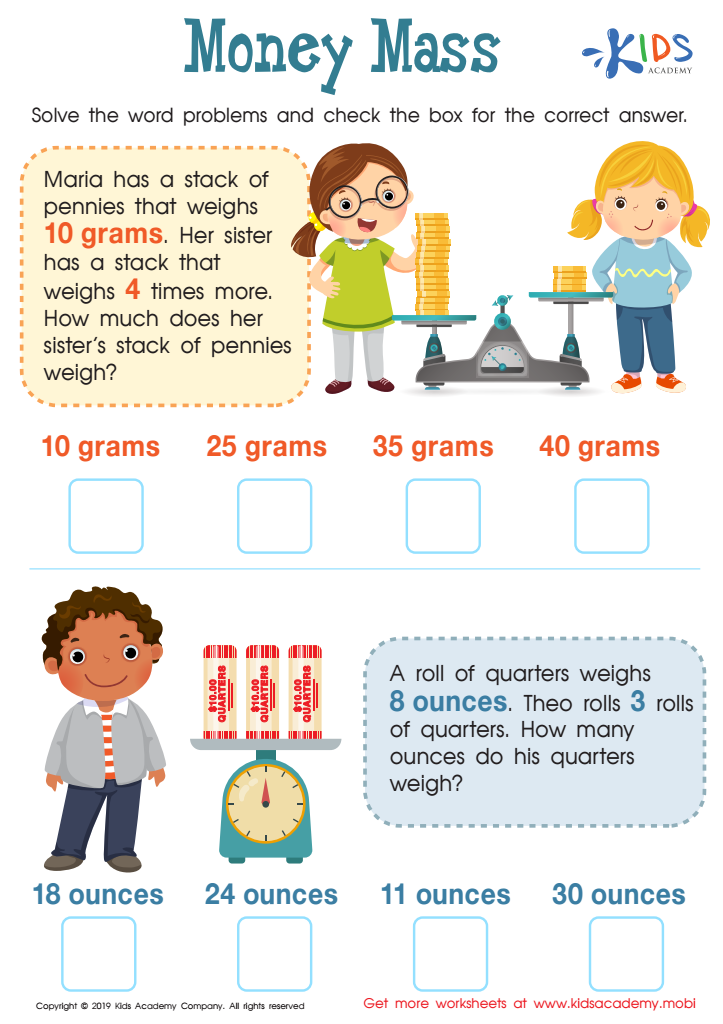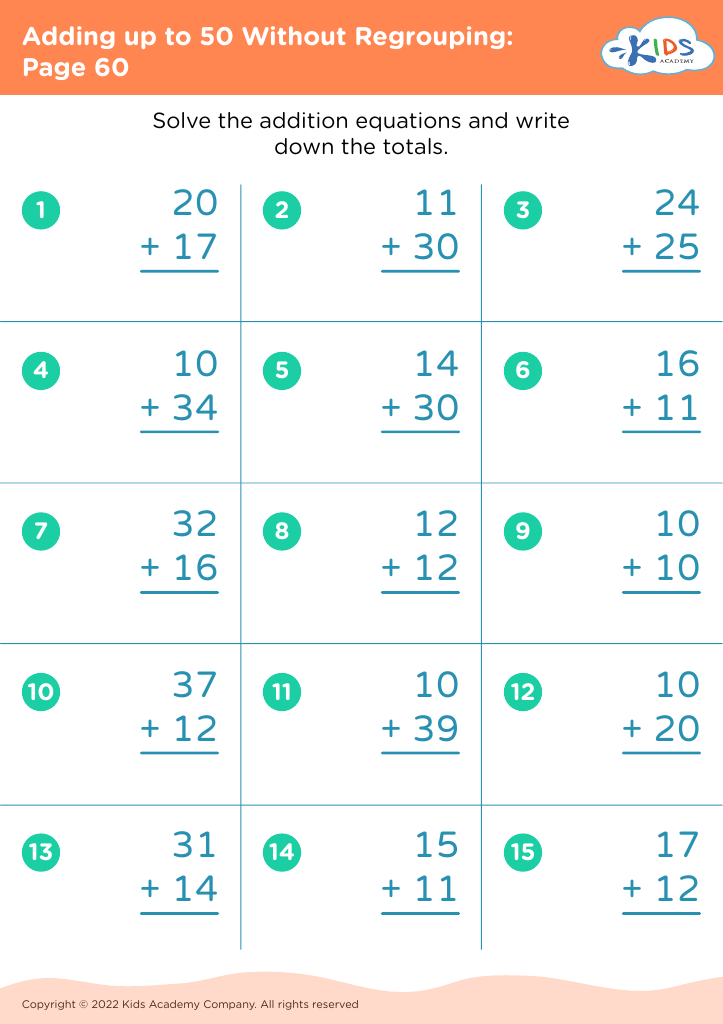Comparing weights Math Worksheets for Ages 5-7
3 filtered results
-
From - To
Our "Comparing Weights" math worksheets for ages 5-7 are designed to build foundational math skills through fun, engaging activities. These worksheets help young learners understand the concept of weight by comparing different objects. Kids will develop critical thinking and problem-solving abilities as they explore measurable attributes. With colorful illustrations and age-appropriate challenges, our resources make learning interactive and enjoyable. Perfect for teachers and parents, these printable worksheets are a great addition to any lesson plan, ensuring children strengthen their math skills while having fun. Enhance your child's educational journey with our expertly crafted comparing weights worksheets today!


Tall or Short and Heavy or Light? Worksheet


Money Mass Worksheet
Comparing weights is a fundamental mathematical concept that parents and teachers should prioritize for children aged 5-7 because it lays the groundwork for essential cognitive and academic skills. At this early stage, children are naturally curious about the world around them, and comparing weights fosters their observational skills and critical thinking.
Engaging in activities that involve comparing weights helps young learners develop their ability to measure, estimate, and understand physical properties, which are crucial components of mathematical reasoning. These activities can also enhance children's vocabulary, with terms like "heavier," "lighter," "balance," and "equal," strengthening their descriptive language skills.
Additionally, comparing weights supports the development of fine motor skills and hand-eye coordination as children manipulate objects. The hands-on, interactive nature of weight comparison exercises boosts engagement and retention, making learning both fun and effective.
By incorporating weight comparison into early math learning, parents and teachers prepare children for more complex math tasks such as addition, subtraction, and geometry, thereby fostering a strong mathematical foundation.
Furthermore, these activities can be linked to real-life experiences, like cooking or playing with toys, helping children see the relevance of math in their everyday lives and nurturing a lifelong interest in learning.
 Assign to My Students
Assign to My Students






















